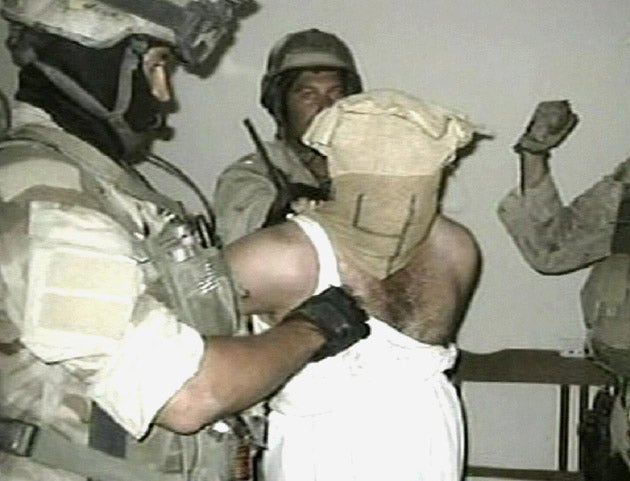On Art and War and Terror, By Alex Danchev

Throughout the 1960s George Steiner published an extraordinary series of essays which argued that art, literature and culture were deeply implicated in the worst atrocities of the first half of the 20th century. For Steiner the man who can read "Goethe and Rilke in the evening" and go to his "day's work at Auschwitz in the morning" throws into disarray the humanising claims of the humanities.
The essays of Alex Danchev challenge this influential assumption. For Danchev, the "imaginative transformation of human life" is the highest good and enables us to comprehend fully our barbarous age.
Danchev is well-known both as an innovative military historian and, more recently, the author of studies on Braque and Picasso. On Art and War and Terror places these two worlds in fascinating and often troubled dialogue.
The villains of his collection are politicians - from Churchill to Blair and Bush - whose "military ardour" is unreal and rhetorical. It is unsettling to include Churchill in this rogues gallery. Evidence against includes the fiction and diaries of Evelyn Waugh, utilised to show why Churchill's radio broadcasts were regarded as suspect by some servicemen. More convincing are the diaries of Churchill's long-suffering Chief of the Imperial General Staff (CIGS), Sir Alan Brooke. He reveals an extraordinary degree of frustration in working with Churchill and persuading him, often in the drunken early hours, of military good sense. Here is a telling example of a soldier who, in the words of Malraux, "made war without liking it".
The contrast is between the "unhappy warrior" and Churchill's "military ardour". Lord Alanbrooke's "hinterland", both his ornithology and his secret diaries, reveal a humility lacking in the egomania of the politician. Danchev is fascinated by soldier-diarists, such as Basil Liddell Hart. Liddell Hart "spent his life chiselling and transmuting war" and, like the First World War poets, was "given his voice by something he hated". Such transmutation brings together the soldier and the artist or, at least, distances the soldier from the politician.
The last three essays deal with the Global War on Terror (GWOT) where war and politics have become utterly indistinguishable. The result is Abu Ghraib and Guantánamo. In these law-free zones, the humane treatment of detainees is one of the "defining issues of the age".
Danchev is particularly strong on the excrescences of GWOT. One of his best essays, on the use of dogs torturing detainees, begins with Kafka and ends with the line of command from Donald Rumsfeld to the CIA in Abu Ghraib.
Another "unhappy warrior" becomes the hero of this account. Master-at-Arms William J Kimbro refused to let his US Navy dog teams become a part of this "chamber of horrors". This is what Danchev calls "senseless kindness", which he also teases out such "senseless kindness" in Shakespeare's King Lear, or the monumental fiction of Vassily Grossman.
Such "moments of reprieve" enabled Primo Levi to remember what it is to be a human being even in Auschwitz-Birkenau. Witnessing these "ordinary virtues" in the most extreme circumstances allows the reader to engage in "moral muscle-building".
Danchev is primarily interested in the "problem of the perpetrator". But can the baleful photographs by guards at Abu Ghraib be redeemed in the name of art?
The book equivocates on this question. There is a parallel between the earlier accounts of Gerhard Richter and Georges Braque as artist-collaborators. Richter was a member of the Hitler Youth, with close relatives in the SS, and Braque lived in Nazi-occupied France. But here a compelling case is made for the power of art to engage with terror. Richter's guileful photographs on his relatives and the Baader-Meinhof Group or Braque's "principled non-engagement" are rich with resonant detail. Next to these towering figures, the cinematic versions of GWOT seem rather thin.
The range of these beautifully crafted essays is often dazzling. At his best, Danchev reveals himself to be a gifted and profound essayist. But if he really wants to challenge George Steiner's bleak view of post-war culture then he will have to speak to his mean-spirited publisher. Not only is this book ridiculously over-priced, it needs to be more generously illustrated.
Bryan Cheyette's 'Diasporas of the Mind: Literature and race after the Holocaust' will be published by Yale
Subscribe to Independent Premium to bookmark this article
Want to bookmark your favourite articles and stories to read or reference later? Start your Independent Premium subscription today.

Join our commenting forum
Join thought-provoking conversations, follow other Independent readers and see their replies